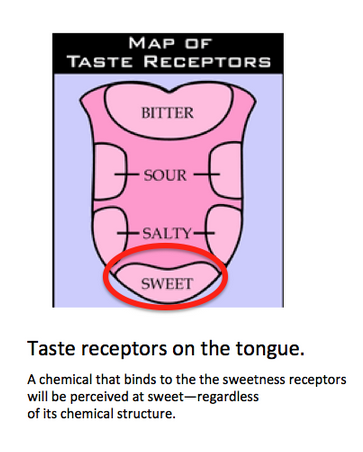 Some junk science studies can be difficult to detect. Some, however, require no effort at all. Here we have one shining example of the latter not that you could tell from all the media hype surrounding this nonsense.
Some junk science studies can be difficult to detect. Some, however, require no effort at all. Here we have one shining example of the latter not that you could tell from all the media hype surrounding this nonsense.
The new Nature article, claiming that artificial sweeteners might contribute to obesity, seemed to be so chemically naive, that ACSH s Dr. Josh Bloom, after a brief perusal of the authors and their affiliations, saw that the answer was obvious.
There were a total of 17 authors, representing nine different groups, mostly at the Weizmann Institute of Science in Israel, he found. Not one of these groups studied chemistry, and as far as I can tell, there is not a single chemist involved in the study.
The basic premise is so flawed chemically that these flaws jump off page. And if the premise of any study is flawed, then any data that is generated, and the conclusions being drawn therefrom, are going to be meaningless. GIGO applies: Garbage In, Garbage Out.
Dr. Bloom explains, The premise of this study that artificial sweeteners affect the microbial composition in the gut makes absolutely no sense chemically, physiologically, or pharmacologically. The authors are taking chemicals that have exactly one thing in common sweetness and trying to correlate this with changes in gut bacteria that may be responsible for raising blood sugar and in mice, no less!.
He continues, Although most of us chemists have most been relegated to the scrapheap of humanity, there are times that we come in handy. This is one of those times.
What is the problem?
It is the absolute lack of any biologically plausible hypothesis to explain, well, anything really.
Why is this? Sweetness is a function of the interaction of certain molecules with the sweet receptors on the tongue.
Dr. Bloom: There is a wide variety of chemicals that are sweet, both synthetic and naturally occurring. They have exactly one thing in common taste. What can this possibly have to do with an effect on gut bacteria? Nothing.
The authors really should have dug up a chemist before they got involved with this silly study. There are plenty of us around mostly unemployed. Because he/she would have pointed out the gaping hole in the logic of the study that you cannot group a chemically diverse group of chemicals simply because they are sweet, and draw any conclusion whatsoever about anything other that the taste.
Dr. Bloom continues, It might be possible (although still highly unlikely) that any single sweet chemical could have some effect on (you name it), but to then lump in other chemicals that have nothing in common structurally or chemically is ludicrous. You might as well take random chemicals out of a lab and test them, because chemically, this is essentially what they did.
He adds. As a chemist, if I saw a bunch of unrelated chemicals doing the the same thing in a test, my mind would start screaming the biology is a mess. This was borne out hundreds of times during my career. It is one of the most important issues in drug discovery whether the biology makes sense.
To add to the absurdity of this claim, one should also keep in mind that another sweet compound is lead. This is why children pick it off walls and eat it. It used to be used as a sweetener until about 300 years ago. Should this have been tested as well?
This just doesn t add up. You could just as well group chemicals together because they are yellow. It makes as much sense.


